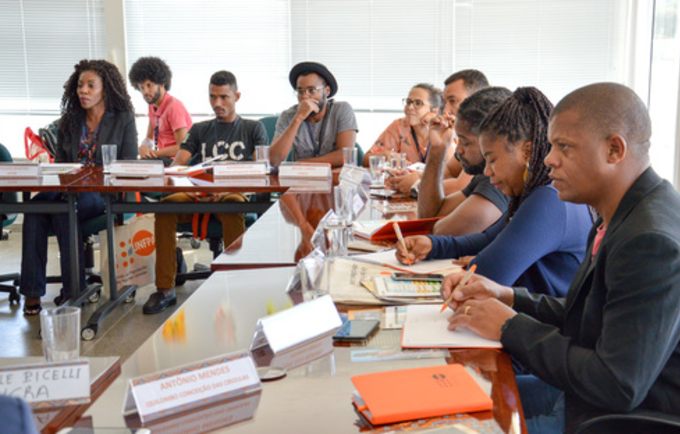 Electronic Data Collection Technology in Population and Housing Census
Strengthening capacity of Senegal and Cabo Verde in conducting population and housing census through experience sharing with Brazil
Electronic Data Collection Technology in Population and Housing Census
Strengthening capacity of Senegal and Cabo Verde in conducting population and housing census through experience sharing with Brazil

Challenges
There has been a growing interest in deploying new technologies, such as electronic data collection, in carrying out population and housing census activities. It was mainly due to the benefits that include cost savings, improved data quality and coverage, increased response rate, timeliness of delivery of outputs and future uses of same technology for statistical operations. However, while the use of technology improved the overall quality of censuses, it posed many challenges including building capacity for successful adoption of these technologies, especially in developing countries.
African countries, modernizing their census operations, recognized that the successful adoption of data collection technology required a good understanding of the requirements, particularly national capacity, to manage census processes. Hence, sharing knowledge and expertise and exchange of experience between countries would be beneficial to all parties promoting and facilitating the use of electronic data collection technologies in censuses.
Towards a Solution
Tapping Brazil’s vast experience in population and housing census and reputation as an active provider of technical cooperation at the global level, the United Nations Population Fund (UNFPA) supported a project on electronic data collection for census operation in Cabo Verde and Senegal. The aim was to strengthen the capacity of their National Statistical Offices through exchange of experience and knowledge sharing with Brazil. Considering that the introduction of electronic data collection technologies in censuses requires a well organised preparation, a project steering committee was created, as well as a technical committee composed of all participating institutions, ensured that the objectives and intended results are achieved.
Results
Knowledge sharing strengthened the institutional capacity of the national statistical offices in Senegal and Cabo Verde through the training of a pool of 25 statisticians from each country and the sharing of technology. Appropriate technologies were adopted, and data gaps were addressed, among others. All relevant partners were involved in formulating the content of training to ensure that their particular needs were met. Knowledge and good practices were shared in the training and skills in electronic data collection honed.
A technical workbook was prepared in the official languages of Senegal and Cabo Verde that covered topics such as methodology for using electronic data, census mapping and training the field team to collect data through electronic devices.
After their censuses and with gained capacity, Cabo Verde and Senegal, in partnership with Brazil, were fully equipped to deliver technical assistance to other countries.
Lessons Learned
- Establish a project steering committee composed of all relevant parties in cooperating countries. An operational-level technical committee is also important. Regular communication among committee members is crucial.
- The practice of co-creation has been effective in producing important materials and strengthened engagement of all parties.
- It is important that SSC principles should guide the relationship throughout the process. UNFPA’s role as neutral facilitator is useful here.
Contact Information
Countries involved
Supported by
Implementing Entities
Project Status
Project Period
Primary SDG
Secondary SDGs
Similar Solutions
| NAME OF SOLUTION | Countries | SDG | Project Status | |
|---|---|---|---|---|
Accelerating the Implementation of African Union Treaties in São Tomé and Príncipe South-South learning from the Beninese judicial system’s experience in the application of human rights treaties to its national law |
Brazil, Cabo Verde, Senegal | 05 - Gender Equality | Completed | View Details |
Accelerating the Transformational Shift to a Low-Carbon Economy in Mauritius Towards supplying 35 percent of the country’s energy needs with renewables by 2025 |
Brazil, Cabo Verde, Senegal | 05 - Gender Equality 09 - Industry, Innovation and Infrastructure 13 - Climate Action | Ongoing | View Details |
Accelerator Labs Network Following collective intelligence methods to address emerging sustainability challenges and the growing demand for local solutions |
Brazil, Cabo Verde, Senegal | 08 - Decent Work and Economic Growth 13 - Climate Action | Ongoing | View Details |
Accessible Dictionary Inclusive Dictionary for all |
Brazil, Cabo Verde, Senegal | 09 - Industry, Innovation and Infrastructure | Completed | View Details |
Access to Justice through e-Services and Dematerialized Case Management Scaling up connectivity and unlocking the digital potential of judicial institutions to enhance access to justice for all |
Brazil, Cabo Verde, Senegal | 05 - Gender Equality | Completed | View Details |
